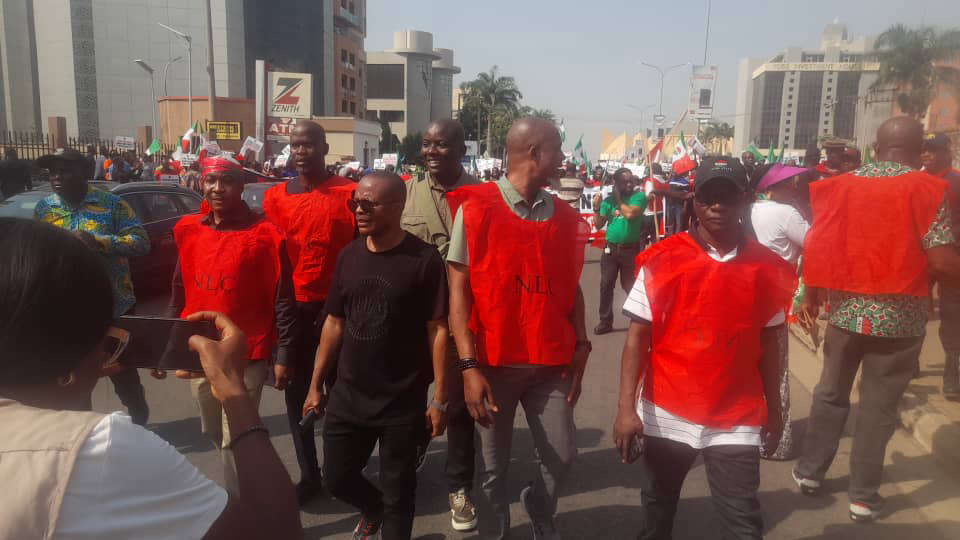
The Nigerian Labour Congress (NLC) commenced a two-day protest Tuesday over the harsh living conditions in Nigeria.
As anticipated, the security deployment is massive in locations across the country.
NLC members mobilized for the demonstration at Race Course in Kano. In Lagos, unionists were addressed by their state chairman, Funmi Sessi in the morning, before marching to the Lagos State House of Assembly.
The Lagos State Commissioner of Police was present as Sessi talked to the workers. The police, Civil Defence Corps, and Lagos State Traffic Management Authority (LASTMA) were stationed at different parts of the Lagos State capital, Ikeja.
The rally in Port Harcourt, the Rivers State capital, began at the Labour House where the NLC’s National President, Joe Ajaero said the protest was to convey the feelings of Nigerians to the government.
Workers also gathered in Abuja for a march planned to terminate at the National Assembly Complex.
Why the Protest?
The protests were called over increasing inflation in Africa’s largest economy. The inflation rate increased to 28.92 percent in December 2023, with the International Monetary Fund (IMF) projecting it could rise to 44 percent.
The increase in the Consumer Price Index is driven by a myriad of factors that the government is finding tough to manage.
Insecurity in Nigeria’s central and northern regions drove inflation to record highs in 2023 as farmers found it difficult to go to their farms and food supply decreased.
A removal of petrol subsidies also drove prices up as transporters hiked the costs of moving goods from one point to another.
Additionally, President Bola Tinubu and the Central Bank of Nigeria’s decision to remove a cap on the naira exchange rate has seen the local currency tumble to historic lows in the foreign exchange market.
The naira has lost 100 percent of its value since Tinubu came to power with the Central Bank releasing new money transfer rules to stem the fall.
The interventions have, so far, been unsuccessful.
Nigeria is dependent on imports for many of its non-food needs and most of its factories’ raw materials.
The devaluation of the naira has meant that importers have had to pay more dollars to bring goods and materials to the country.
These traders and manufacturers have passed on the increased cost to everyday users, leading to a doubling, tripling, and some cases quadrupling in the prices of daily supplies within two months.
The triple factors of insecurity, fuel subsidy removal, and the floating of the naira have bitten Nigerians so hard that there have been pockets of protests in some Southwest and Nothern states.
The NLC’s two-day warning strike was called to the government’s attention to the people’s complaints.


